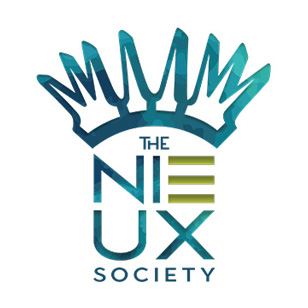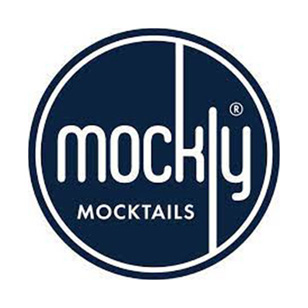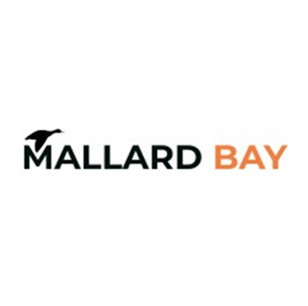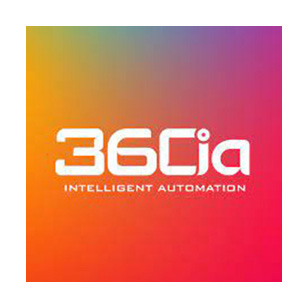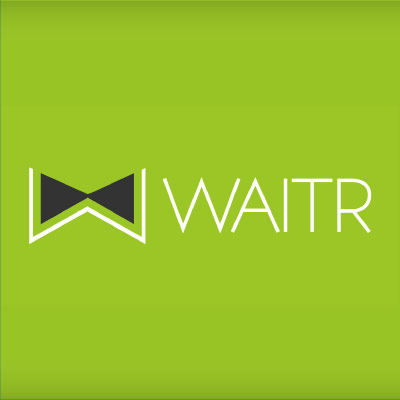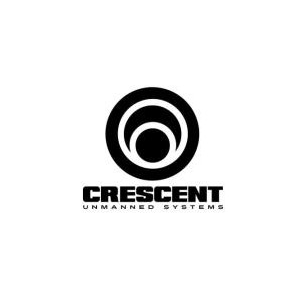How PRAI Letters Will Increase General Solicitations
When the JOBS Act amended the securities rules to permit general solicitation for fundraising, many wondered how it would affect capital markets and small businesses seeking investment. Generally, service providers and observers express disappointment with the new provisions. By far, the most common disappointment concerns the requirement to use “reasonable steps to verify” that investors are accredited. It is not surprising that investors do not want to share sensitive financial data with companies they might invest money in. It is also not surprising that investors don’t want to share this information with unfamiliar “third party” verification companies. Sharing this information is made even scarier to me as an angel investor and attorney even though there are reputable companies who handle these dealings. In my experience, asking investors to share financial docs with third party verification services or with the startups asking for money has been a non-starter. So, what are the alternatives? In order to make anything meaningful of the JOBS Act general solicitation, services providers, like attorneys, accountants, brokers, etc. need to deal with the reality of the JOBS Act and the fact that companies are going to use general solicitation to fundraise, regardless of their advisors’ personal views.
I don’t think many attorneys or companies are thinking about the JOBS Act verification requirement correctly. Many people have assumed that the issuer needs to request and review supporting docs to verify an investor’s accredited status. Or, they have assumed that the issuer must use a third party service or law firm to verify the investor’s status–even though the investor does not know that party. I think that both approaches miss the mark. Increasingly, issuers are pursuing a different strategy by asking for a letter from a personal advisor to the potential investor. I think this will become the inevitable market standard in coming years.
I believe the future of crowdfunding will be served best by companies’ obtaining what I refer to as the “personal representative accredited investor letter” or “PRAI Letter.” The PRAI Letter is a letter from a potential investor’s personal accountant, attorney, certified financial planner/advisor, or a similarly qualified personal advisor to an accredited investor. I am making the reasonable assumption that virtually every accredited investor has an advisor, such as a lawyer or accountant, who already has source documents available to verify that investor’s accredited investor status. I am open to challenge on this assumption, but I don’t think that the argument against this assumption is very strong. I have been told that some professionals will hesitate to assume liability for any such determination by issuing a PRAI Letter. I do not see this as a real issue in the market, and I think it will become less of an issue as education about the JOBS Act increases.
I think the PRAI Letter will emerge as the safe harbor of choice for these reasons:
- Privacy. Most accredited investors already have accountants, attorneys, wealth managers or other advisers who are already intimately familiar with that person’s financial information. Asking for a letter verifying the investor’s status from a person who already knows such information should not pose any privacy concerns whatsoever. In many cases, service providers like accountants will already have access to source documents like financial returns, bank statements, etc. By using their current personal representatives, the investor does not have to share sensitive information with anyone new. There are zero additional privacy concerns for investors who already have these advisors if they request those advisers fill out a form letter checkbox indicating that the professional has verified the status. Issuer’s counsel can usually rely on this under the “principles-based” methodology as a type of third party verification. This is no more invasive than the current confidential investor questionnaires widely used today.
- Cost and Time. Many personal advisors to accredited investors already have a close, personal relationship to the investor and have access to supporting documentation. Standard verification letters already exist in the marketplace and are available online. It should be extremely cheap and easy for such an advisor to check the box and sign the verification letter. Issuer’s counsel drafts a standard “check-the-box” letter for the personal representative, and the result is something that is almost exactly the same as the standard confidential investor questionnaire widely in use for Rule 506(b) offerings today. I cannot see any real reason that most personal representatives will charge their clients substantial fees for this. If issuer’s counsel adequately explains the situation in a cover letter and provides the form letter and guidance, then the professional should have minimal due diligence and time to charge his or her client. Those who fail to get up to speed on something as important as this historic change in securities laws will simply fall behind the curve as more and more companies use this new tool to raise money.
- Emerging Market Standard. Several companies are already successfully using PRAI Letters and the market appears to support this approach. Our experience is that a large number of investors will quickly provide these letters with minimal explanation, fuss or hassle. The result has been that clients can open up their financing more widely and close deals more quickly. Although hard data is difficult to come by, I believe this will become the market standard (if it is not already) due to the low barriers to adoption.
Those in the capital markets and securities industries sometimes like endless debate about best practices. There is an inherent uneasiness with new developments in the securities industry, which is reasonable in many cases. In my humble view, there is little doubt that general solicitation will gain in popularity and offers at least an interesting means of raising money for companies (how effective it will be is something time will tell). As familiarity with the JOBS Act increases, so too will the comfort level of those being asked to provide verification evidence of their clients’ accredited investor status. A market standard will emerge, and the initial uncertainty and debate over verification is likely to subside with the use of a PRAI Letter to verify status. Investors can cite privacy concerns to resist being verified as accredited by parties they do not know or by portfolio companies, but as more and more companies blur lines between “old school” private placements and general solicitations, I believe that more and more investors are going to be asked to provide these types of PRAI Letters. If they receive such a letter from someone they already know and trust, the impact to the investor should be relatively minimal.
When the JOBS Act amended the securities rules to permit general solicitation for fundraising, many wondered how it would affect capital markets and small businesses seeking investment. Generally, service providers and observers express disappointment with the new provisions. By far, the most common disappointment concerns the requirement to use “reasonable steps to verify” that investors are accredited. It is not surprising that investors do not want to share sensitive financial data with companies they might invest money in. It is also not surprising that investors don’t want to share this information with unfamiliar “third party” verification companies. Sharing this information is made even scarier to me as an angel investor and attorney even though there are reputable companies who handle these dealings. In my experience, asking investors to share financial docs with third party verification services or with the startups asking for money has been a non-starter. So, what are the alternatives? In order to make anything meaningful of the JOBS Act general solicitation, services providers, like attorneys, accountants, brokers, etc. need to deal with the reality of the JOBS Act and the fact that companies are going to use general solicitation to fundraise, regardless of their advisors’ personal views.
I don’t think many attorneys or companies are thinking about the JOBS Act verification requirement correctly. Many people have assumed that the issuer needs to request and review supporting docs to verify an investor’s accredited status. Or, they have assumed that the issuer must use a third party service or law firm to verify the investor’s status–even though the investor does not know that party. I think that both approaches miss the mark. Increasingly, issuers are pursuing a different strategy by asking for a letter from a personal advisor to the potential investor. I think this will become the inevitable market standard in coming years.
I believe the future of crowdfunding will be served best by companies’ obtaining what I refer to as the “personal representative accredited investor letter” or “PRAI Letter.” The PRAI Letter is a letter from a potential investor’s personal accountant, attorney, certified financial planner/advisor, or a similarly qualified personal advisor to an accredited investor. I am making the reasonable assumption that virtually every accredited investor has an advisor, such as a lawyer or accountant, who already has source documents available to verify that investor’s accredited investor status. I am open to challenge on this assumption, but I don’t think that the argument against this assumption is very strong. I have been told that some professionals will hesitate to assume liability for any such determination by issuing a PRAI Letter. I do not see this as a real issue in the market, and I think it will become less of an issue as education about the JOBS Act increases.
I think the PRAI Letter will emerge as the safe harbor of choice for these reasons:
- Privacy. Most accredited investors already have accountants, attorneys, wealth managers or other advisers who are already intimately familiar with that person’s financial information. Asking for a letter verifying the investor’s status from a person who already knows such information should not pose any privacy concerns whatsoever. In many cases, service providers like accountants will already have access to source documents like financial returns, bank statements, etc. By using their current personal representatives, the investor does not have to share sensitive information with anyone new. There are zero additional privacy concerns for investors who already have these advisors if they request those advisers fill out a form letter checkbox indicating that the professional has verified the status. Issuer’s counsel can usually rely on this under the “principles-based” methodology as a type of third party verification. This is no more invasive than the current confidential investor questionnaires widely used today.
- Cost and Time. Many personal advisors to accredited investors already have a close, personal relationship to the investor and have access to supporting documentation. Standard verification letters already exist in the marketplace and are available online. It should be extremely cheap and easy for such an advisor to check the box and sign the verification letter. Issuer’s counsel drafts a standard “check-the-box” letter for the personal representative, and the result is something that is almost exactly the same as the standard confidential investor questionnaire widely in use for Rule 506(b) offerings today. I cannot see any real reason that most personal representatives will charge their clients substantial fees for this. If issuer’s counsel adequately explains the situation in a cover letter and provides the form letter and guidance, then the professional should have minimal due diligence and time to charge his or her client. Those who fail to get up to speed on something as important as this historic change in securities laws will simply fall behind the curve as more and more companies use this new tool to raise money.
- Emerging Market Standard. Several companies are already successfully using PRAI Letters and the market appears to support this approach. Our experience is that a large number of investors will quickly provide these letters with minimal explanation, fuss or hassle. The result has been that clients can open up their financing more widely and close deals more quickly. Although hard data is difficult to come by, I believe this will become the market standard (if it is not already) due to the low barriers to adoption.
Those in the capital markets and securities industries sometimes like endless debate about best practices. There is an inherent uneasiness with new developments in the securities industry, which is reasonable in many cases. In my humble view, there is little doubt that general solicitation will gain in popularity and offers at least an interesting means of raising money for companies (how effective it will be is something time will tell). As familiarity with the JOBS Act increases, so too will the comfort level of those being asked to provide verification evidence of their clients’ accredited investor status. A market standard will emerge, and the initial uncertainty and debate over verification is likely to subside with the use of a PRAI Letter to verify status. Investors can cite privacy concerns to resist being verified as accredited by parties they do not know or by portfolio companies, but as more and more companies blur lines between “old school” private placements and general solicitations, I believe that more and more investors are going to be asked to provide these types of PRAI Letters. If they receive such a letter from someone they already know and trust, the impact to the investor should be relatively minimal.



